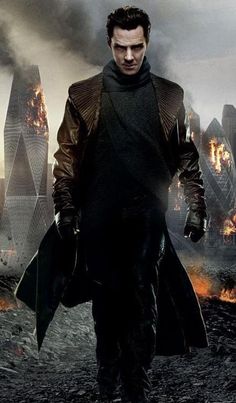All worlds have bad guys, at least interesting ones do. They also have rules to maintain order to some degree, and those rules determine what behavior is legal or illegal. Legality does not make something morally bad – just against the law. In all worlds, we will have to determine if we want clean lines, where illicit is bad, or more nuanced realities, where legal and moral are not the same thing, which is a wonderful source of conflict.
Villains
In a past post in an earlier A to Z challenge, I identified the key attributes of great villains, which I’ve reproduced below. Villains, in fantasy or more modern fiction, still work best if the meet the characteristics below.

- They are charismatic, able to get folks to follow them, through some extreme carrot-stick combination. At times it’s a negative charisma, or an aura that only appeals to some (e.g. Voldemort) but they use their power to motivates others to action. They offer a form of loyalty to their followers.
- They teeter on the fence between genius and madness (Hannibal Lecter).
- They don’t see themselves as villains but as saviors or visionaries. (Loki)
- They carry deep pain and are driven in part by negative emotions like anger and vengeance. That pain and anger twists their vision of what the world and the future should look like (Magneto)
Villains drive the protagonist. So, the more complex the villain, the more complex the protagonist. Worlds based on good and evil are emotionally exciting. Ones based on nuanced version of right and wrong are more intellectually tense.
Ethical choices
Villains may cater to their own hungers, but political, economic and social systems create incentives that influence the degree to which average folks obey the law. And one critical element needed to maintain legal behavior are how ethical systems are created, and more importantly, sustained. In many cases, ethical systems emerge from religious or other institutions that tend to the soul and/or the divine spirit. But ethics also emerge from family (Jon Snow picked up his deep sense of honor from Ned Stark), or communities (think of the restrictions of village life).
If you need your characters to struggle with ethical decisions, you will need to understand where the source of ethical sensibilities come from. And the cost of the ethical choice.
So, who is your favorite villain and why? (I bet you can guess mine.)
Please visit all the other bloggers participating on the A to Z Blog Challenge.

There are so many fantastic villains out there, it’s too hard to pick just one. There’s something very compelling about people who choose not to follow the rules of society…
I have a lot of favorites myself. Great villains also make great heroes. Thanks for dropping by.
Well said. Villains can be written so one-dimensional at times, and they should have the same creative effort applied to them in written work as the hero/ine.
Thanks. I agree. You can’t have a great hero or heroine without an equally great villain. The push each other.